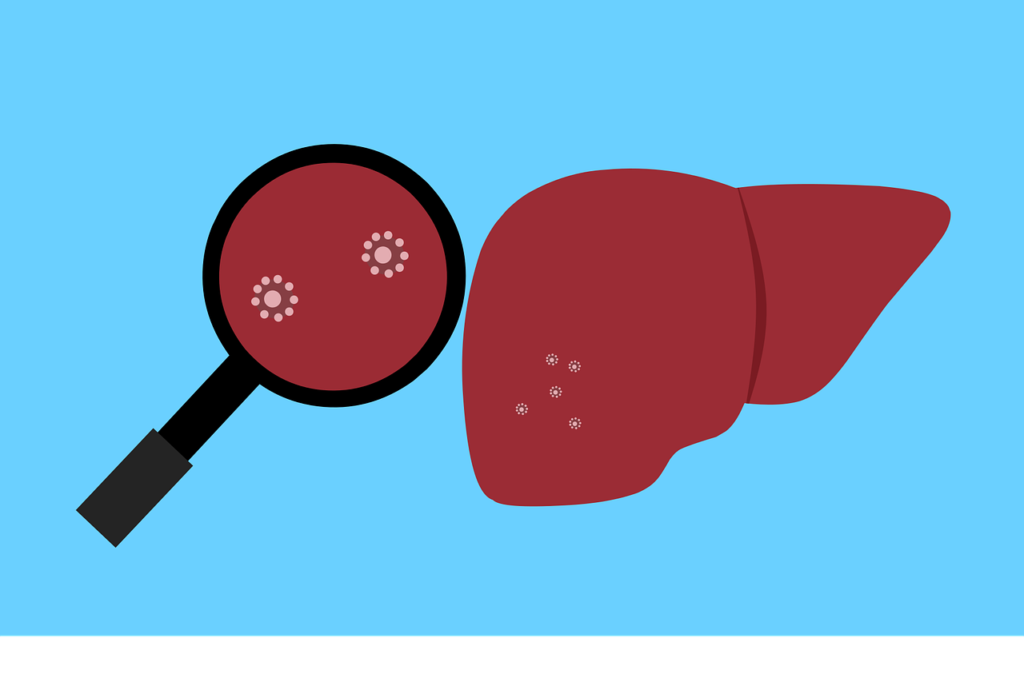Contact Us 720-964-1335 or 901-675-6125
Understanding Fatty Liver Disease: Symptoms, Causes, and Best Practices for Management

Fatty liver disease is a prevalent condition characterized by the accumulation of fat in the liver cells. While it’s normal to have some fat in the liver, when it exceeds 5-10% of the organ’s weight, it can lead to health complications. In this blog post, we’ll briefly discuss definition, symptoms, causes, and best practices for managing fatty liver disease.
What is Fatty Liver Disease?
In western countries fatty liver is the most common liver disorder. Researchers have estimated that approximately 20-30% of the U.S. population have this disorder. Fatty liver disease, also known as hepatic steatosis, occurs when excessive fat builds up in the liver. Over time this build-up of fat can impair liver function and lead to inflammation and scarring, potentially progressing to more severe liver conditions such as non-alcoholic steatohepatitis (NASH) or cirrhosis. Common causes of or risk factors for fatty liver disease include being overweight (especially belly fat), obesity, having type 2 diabetes mellitus, high blood cholesterol or high triglycerides, and drinking too much alcohol. Other causes can also include having an underactive thyroid gland, certain medications, and having PCOS (polycystic ovary syndrome). Fatty liver disease is categorized into two types 1) nonalcoholic fatty liver disease (NAFLD) and 2) alcoholic fatty liver disease or alcoholic steatohepatitis.
(Note: Renaming of fatty liver disease has occurred in recent years due to its close association with cardiometabolic risk factors. So, you may also hear fatty liver referred to as metabolic dysfunction associated steatotic liver disease MASLD.)
Symptoms of Fatty Liver Disease:
A fatty liver often produces no symptoms. You can have a fatty liver for multiple years or decades without causing any physical signs or symptoms. People usually learn about having a fatty liver when they have testing for other reasons. But as the fatty liver disorder gets worse, you may experience the following:
- Fatigue
- Weakness
- Abdominal pain or discomfort – top right of abdomen usually
- Swelling in the abdomen
- Jaundice (yellowing of the skin and eyes)
- Dark urine
- Nausea or vomiting
Health Consequences if Fatty Liver Disease is Not Corrected:
As stated, it can take multiple years before a person realizes they have an issue with fatty liver disease. However, if left untreated, fatty liver disease can lead to more serious health consequences. These consequences include:
- Liver inflammation (non-alcoholic steatohepatitis -NASH)
- Liver fibrosis (scarring)
- Liver cirrhosis
- Liver cancer
- Increased risk of cardiovascular disease
- Metabolic syndrome
- Type 2 diabetes
Best Practices to Manage Fatty Liver Disease:
Currently there is not a medical treatment for fatty liver disease. Research is underway and medication therapy for fatty liver disease is being analyzed. But for now, changing your lifestyle, especially weight loss, is the best treatment to correct or decrease a fatty liver. Lifestyle changes to consider are:
- Healthy Diet Selections: Follow a balanced diet rich in fruits, vegetables, lean proteins, and whole grains. Limit consumption of sugary foods, refined carbohydrates, and saturated fats.
- Regular Exercise Regimen: Engage in regular physical activity to promote weight loss and improve insulin sensitivity. Aim for at least 150 minutes of moderate-intensity exercise per week.
- Weight Loss and Management: Achieve and maintain a healthy weight through a combination of diet and exercise. Even modest weight loss can significantly reduce liver fat and improve liver health.
- Limit Alcohol Consumption: Minimize or eliminate alcohol consumption, as excessive alcohol intake can worsen fatty liver disease and increase the risk of liver damage.
- Monitor Medications: Be cautious with medications and supplements, as some can exacerbate liver damage. Consult with a healthcare professional before starting any new medications.
- Manage Underlying Health Conditions: Control conditions such as obesity, diabetes, and high cholesterol, as they can contribute to fatty liver disease and exacerbate its effects.
- Regular Medical Check-ups: Schedule regular check-ups with a healthcare provider to monitor liver health and address any concerns promptly.
Conclusion:
Fatty liver disease is a common condition that can have serious health implications if left untreated. By understanding its symptoms, causes, and best practices for management, individuals can take proactive steps to improve liver health and reduce the risk of complications. By adopting a healthy lifestyle, including a nutritious diet, regular exercise, and weight management, individuals can positively impact their liver health and overall well-being. As always, consulting a healthcare professional to help you achieve these lifestyle changes can be beneficial as well.

